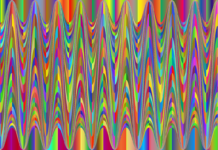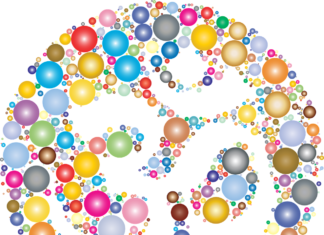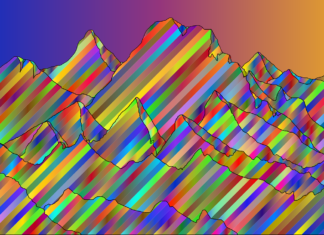The Creator Economy has emerged as a dynamic and transformative force in today’s digital landscape, redefining how individuals interact with technology, content, and entrepreneurship. At its core, the Creator Economy centers around empowering individuals to leverage their unique talents, skills, and creativity to generate income, build communities, and establish their personal brands. This paradigm shift has not only democratized the process of content creation but has also disrupted traditional notions of work, enabling people to turn their passions into sustainable careers.
In recent years, the term “Creator Economy” has gained significant traction, reflecting the monumental shift from traditional media consumption to user-generated content and personalized online experiences. This phenomenon has been driven by the convergence of several key factors: the ubiquity of the internet, the rise of social media platforms, the proliferation of digital tools and technologies, and the changing preferences of consumers. As a result, individuals are no longer passive consumers; they are active participants, curators, and even creators of the content they engage with.
Central to the Creator Economy is the idea that almost anyone can become a creator. Whether it’s crafting insightful blog posts, producing entertaining videos, designing stunning visuals, composing music, or developing innovative apps, individuals can now showcase their skills to a global audience. Social media platforms, video-sharing websites, and content marketplaces have provided the infrastructure for creators to share their work easily and access potential supporters, followers, and customers. This interconnected digital ecosystem has blurred the lines between content consumers and content creators, fostering a sense of community and co-creation.
The Creator Economy’s impact extends beyond individual creators—it has sparked new business models, reshaped industries, and even influenced the way traditional companies approach marketing and customer engagement. Brands are increasingly recognizing the value of collaborating with creators who hold genuine influence and authenticity within their niche communities. These collaborations can take various forms, such as sponsored content, brand partnerships, and influencer campaigns, which are often more relatable and engaging to audiences compared to traditional advertisements.
Furthermore, the Creator Economy has enabled the rise of the “passion economy,” where individuals can monetize their expertise, advice, and niche interests. Online courses, subscription-based content, and exclusive memberships have become popular avenues for creators to generate income directly from their dedicated supporters. This direct-to-consumer approach not only provides creators with greater financial autonomy but also fosters deeper connections between creators and their audiences.
In conclusion, the Creator Economy represents a seismic shift in how content is produced, consumed, and valued in the digital age. It celebrates individuality, creativity, and authenticity, allowing creators to thrive by doing what they love. This economy is a testament to the power of technology in democratizing opportunities and amplifying voices that might have otherwise remained unheard. As the landscape continues to evolve, it’s clear that the Creator Economy is here to stay, reshaping industries, challenging traditional norms, and empowering individuals to shape their own destinies in the digital realm.
Empowerment through Creativity:
The Creator Economy empowers individuals to express their creativity, skills, and passions on digital platforms. It provides a democratized space where anyone can become a content creator and reach a global audience, regardless of their background or location.
Direct-to-Consumer Monetization:
Creators can directly monetize their content and expertise through various avenues such as subscription models, premium content, online courses, and merchandise. This direct relationship with their audience enables creators to generate sustainable income streams.
Community Building:
The Creator Economy emphasizes community engagement and interaction. Creators can build loyal fan bases and foster meaningful connections with their followers. These communities often revolve around shared interests, creating a sense of belonging and camaraderie.
Innovation in Business Models:
The Creator Economy has given rise to innovative business models, such as influencer collaborations, brand partnerships, and affiliate marketing. These models leverage the credibility and authenticity of creators to promote products and services in a more relatable manner.
Disruption of Traditional Industries:
Traditional industries like entertainment, media, and marketing have been disrupted by the Creator Economy. Consumers increasingly value content that resonates with their personal interests and reflects diverse perspectives, challenging established norms and pushing for more inclusive representation.
These key features showcase the transformative nature of the Creator Economy, where individuals are no longer passive consumers but active participants in shaping digital content and commerce.
In the vast landscape of the digital era, the Creator Economy has emerged as a paradigm-shifting phenomenon that has redefined traditional notions of work, content creation, and even celebrity status. This new economy has disrupted established industries and created novel pathways for individuals to monetize their creativity, skills, and expertise. As we delve into the intricacies of the Creator Economy, it becomes evident that its influence extends far beyond individual content creators—it encompasses cultural shifts, technological advancements, and economic evolution.
At the heart of the Creator Economy lies the notion of democratization. Historically, avenues for creative expression and recognition were often constrained by gatekeepers who controlled access to distribution channels. However, with the advent of digital platforms, the power to create and distribute content has been placed directly in the hands of individuals. This shift has transformed the dynamics of influence and fame, allowing niche creators to amass substantial followings and wield significant impact without the traditional backing of media conglomerates.
Social media platforms have played a pivotal role in fostering the growth of the Creator Economy. Platforms like YouTube, TikTok, Instagram, and more recently, Clubhouse, have enabled creators to showcase their talents and personalities to a global audience. The engagement mechanisms provided by these platforms, such as likes, comments, and shares, serve as both validation and motivation for creators to continue producing content. This interactive nature has transformed the passive act of consuming media into an active participatory experience.
Moreover, the rise of the Creator Economy has given birth to new forms of content consumption. Short-form video content, for instance, has gained immense popularity, reshaping how we consume and engage with information. The bite-sized nature of these videos caters to our increasingly fragmented attention spans while allowing creators to convey their messages succinctly. This format has spurred creative innovation, encouraging creators to experiment with storytelling techniques that capture and retain viewers’ interest within seconds.
The collaborative dynamics within the Creator Economy have also blurred the lines between personal and professional identities. Traditional career trajectories often demanded a clear separation between one’s personal life and their professional endeavors. However, creators seamlessly blend these aspects, sharing snippets of their personal lives alongside their work. This authenticity fosters a sense of relatability, as audiences connect with creators on a more human level, transcending the polished veneer often associated with traditional media figures.
As the Creator Economy flourishes, its impact on traditional industries becomes increasingly apparent. Traditional media outlets have had to adapt to changing consumer preferences by incorporating digital strategies and collaborating with online creators. Music artists, for example, release content on platforms like YouTube and SoundCloud, bypassing traditional record label routes. Even news and journalism have been influenced, as independent journalists and bloggers gain recognition for their insightful analysis and fresh perspectives.
The Creator Economy has also facilitated the rise of micro-influencers. These are individuals who cater to specific niche interests and enjoy a dedicated following within those communities. Unlike macro-influencers with millions of followers, micro-influencers possess a more intimate connection with their audience, often leading to higher engagement rates and increased trust. This phenomenon has prompted brands to shift their influencer marketing strategies, favoring authentic partnerships that resonate with smaller but more engaged audiences.
It’s important to acknowledge the challenges that come with the Creator Economy. The pressure to consistently produce content, maintain engagement, and manage personal branding can lead to burnout. Creators often find themselves navigating uncertain income streams, as monetization methods can be unpredictable and dependent on algorithm changes or market trends. Additionally, issues related to copyright, intellectual property, and fair compensation for creators continue to be subjects of debate and advocacy.
In conclusion, the Creator Economy has catalyzed a transformative shift in the digital landscape. Its influence permeates the ways we consume content, perceive celebrity, and even conduct business. The democratization of creativity and the amplification of individual voices have ushered in an era where anyone can become a creator, shaping culture and challenging established norms. As technology continues to evolve, so too will the Creator Economy, presenting new opportunities, innovations, and discussions about the nature of work, identity, and community in the digital age.






















